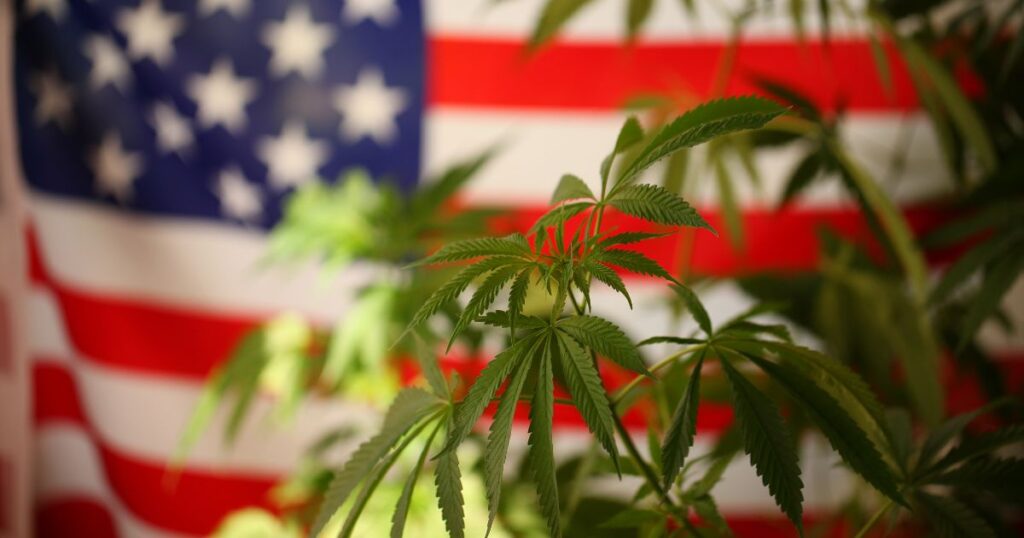The use of medical cannabis has been a game-changer for many Americans seeking therapeutic relief for various conditions, from anxiety to chronic pain. Yet, while this treatment may improve the quality of life for patients, the laws and regulations regarding its use in the workplace remain inconsistent and contentious. A recent court ruling in Florida and a new ban in Kentucky have highlighted just how complicated navigating medical cannabis use rights in employment has become.
Florida Judge Rules in Favor of Paramedic Fired for Medical Cannabis
For paramedic Angelo Giambrone, a simple drug test spiraled into a legal battle over workplace rights. Giambrone, a long-time Hillsborough County Fire and Rescue employee, was placed on unpaid administrative leave in 2019 after a random drug test detected cannabis in his system. Though he presented his state-issued medical marijuana card and explained that his use of cannabis was off-site and off-duty, his efforts to resolve the matter fell on deaf ears.
Earlier this month, Judge Melissa Polo ruled in Giambrone’s favor, declaring that Hillsborough County violated Florida’s Civil Rights Act according to the Florida Phoneix. The court recognized Giambrone’s medical conditions—anxiety, insomnia, and PTSD—as disabilities and determined that the county should have provided reasonable accommodations.
Judge Polo explicitly stated that no evidence suggested Giambrone used cannabis at work, on county property, or during work hours, nor did he report to work under the influence. With this ruling, Hillsborough County must now compensate Giambrone with back pay, damages, and attorney fees.
This decision not only marks a significant victory for Giambrone but also sets a precedent for employee protections under the Florida Civil Rights Act. However, Florida law still leaves some gaps, particularly in regards to workplace accommodations for off-duty medical cannabis use.
Implications in Florida
Florida’s current medical marijuana law permits employers to prohibit cannabis use in the workplace or working while under its influence. However, the law remains unclear on whether employers must accommodate off-duty use, creating uncertainty for both employers and employees.
Democratic lawmakers in the state have repeatedly introduced bills to protect employees who legally use medical cannabis outside of work, but these efforts have stalled in Florida’s GOP-controlled legislature. The Giambrone ruling, however, reinforces what medical cannabis patients and their advocates have been pushing for since medical marijuana was legalized in the state in 2016—fair treatment and clear protections in the workplace.
Kentucky County Bans Medical Cannabis for Employees
While Florida’s legal ruling sparks hope for progress, the situation in Kentucky paints a starkly different picture. Mercer County recently voted to ban its employees from using medical cannabis altogether—regardless of whether they use it off-duty or hold a valid medical prescription according to WKYT.
Citing the Drug-Free Workplace Act of 1988, the Mercer County Fiscal Court unanimously approved a resolution prohibiting county employees from using cannabis. While Kentucky law does not require employers to permit or accommodate medical marijuana, this strict measure is a disappointment for patients hoping to benefit from the state’s recently legalized medical cannabis program, set to go into effect on January 1.
Mercer County Judge-Executive Sarah Steele stated, “We know that [Senate Bill 47] allows medical cannabis in Kentucky. But… [county governments have] the right under this statute to not permit or accommodate the use of cannabis.”
Employees, even those with valid medical cannabis cards, will face dismissal if found using the substance during their employment with the county government.
This decision reflects a growing trend among local and state governments to exercise their right to restrict cannabis use under legislation aimed at federal compliance, such as the Drug-Free Workplace Act. The Mercer County ban mirrors broader challenges facing Kentucky workers, as other municipalities weigh implementing similar policies.
These bans force many employees to make a painful choice between effective medical treatment and job security. This is especially troubling since employers widely accommodate other prescription medications, often with more severe side effects.
The Confusing Patchwork of U.S. Cannabis Regulations
These two cases reveal just how inconsistent and complicated the rules surrounding medical cannabis use and employment protections have become. While 38 states in the U.S. have legalized medical cannabis, only about half of those states explicitly prohibit discrimination against medical cannabis users in the workplace. Fewer still require employer accommodations for individuals using cannabis off-site.
This patchwork of regulations creates confusion, leaving medical cannabis patients vulnerable to losing not just their jobs but also the treatments that keep them well. Businesses, meanwhile, are stuck in limbo, with little federal guidance to ensure compliance and fairness.
One of the biggest obstacles to resolving these conflicts is the federal government’s classification of cannabis as a Schedule I drug. Until federal laws change, states craft their own regulations, often creating conflicting policies within the same region. Employees who travel or relocate across state lines must adapt to dramatically different policies, adding more challenges for businesses operating in multiple states.
Where Do We Go From Here?
As the use of medical cannabis grows, so does the demand for fair and consistent workplace policies. Employees with medical cannabis cards deserve equal treatment to those using other prescription medications, yet the current legal landscape leaves many vulnerable to discrimination and dismissal.
The ruling in Florida offers hope that we’re moving closer to a future where medical cannabis patients are treated fairly. But the ban in Kentucky is a sobering reminder that we have a long way to go.
It’s time for businesses, lawmakers, and advocates to come together to create comprehensive policies that balance workplace safety with employee rights. Until then, the debate over medical cannabis in the workplace will remain an uphill battle—one that affects millions of working Americans.
















